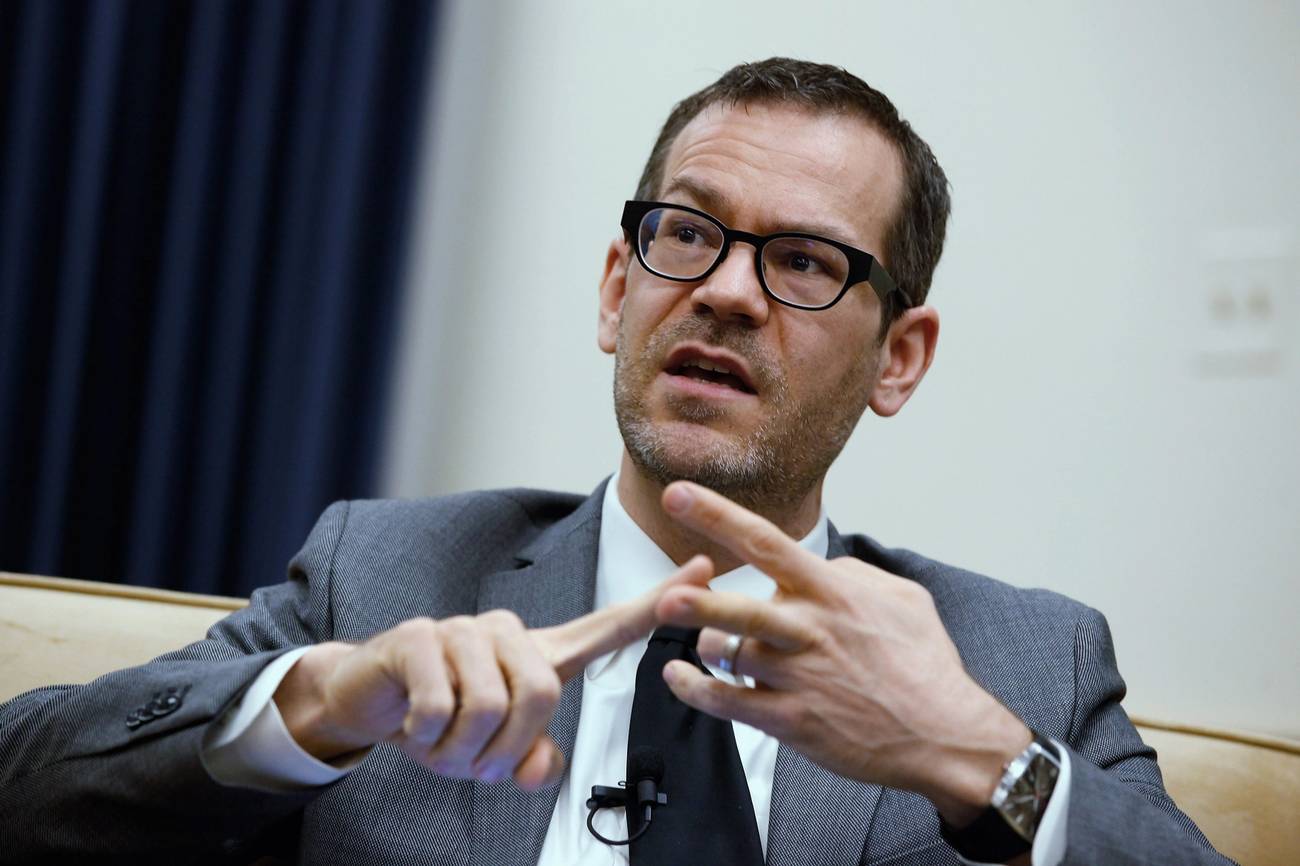Does Israel Lie America Into Wars?
Colin Kahl’s creepy insinuation was debunked last week. The question is why Biden’s Pentagon pick said it in the first place.



A top adviser to Iran’s Supreme Leader Ali Khamenei has acknowledged the 2018 Israeli operation that seized Iran’s nuclear archive. “The country has been widely exposed to security violations, and the example is that in less than a year, three security incidents have occurred: two explosions and one assassination,” Mohsen Rezaee, secretary of the Expediency Discernment Council, told Iran’s Mehr News last Wednesday. “Before this, documents from our entire nuclear [archive] have been stolen, and before that, a few suspicious drones came and did some work.”
Rezaee’s statement marked the first time Iran has acknowledged that the nuclear archive lifted by the Israelis was real—a fact that was obvious to any sentient observer from the size, complexity, and interconnected nature of the materials, which would have taken many years and a very technologically advanced team of forgers to manufacture out of whole cloth. Yet the Iranians had previously been loath to admit that the archive was authentic, presumably because both its contents and its theft were embarrassing to the regime.
Which leaves President Joe Biden’s former national security adviser and current nominee for undersecretary of defense for policy, Colin Kahl, in the ludicrous position of being the only Iranian nuclear archive denialist still standing.
Of course, there was no shortage of Obama-era echo chamber operatives and reporter types who broadcast their initial skepticism about aspects of Israeli Prime Minister Benjamin Netanyahu’s 2018 presentation of the stolen archive. The materials presented by the Israelis showed that Iranian claims that had been taken at face value by President Obama and his team for the purposes of securing the nuclear deal were false. Why did it matter? As Jacob Nagel and Mark Dubowitz of the Foundation for Defense of Democracies wrote in Newsweek recently, “What is the point of ‘unprecedented’ monitoring of these sites if the IAEA never established a baseline of Iran’s weaponization efforts?”
Was Netanyahu hyping a minor find in 2018? What was actually in the so-called “archive”? Were all the documents in fact real? As soon as Israel revealed its operation, those with a professional interest in soft-pedaling the lies of Tehran’s spokespeople suddenly became hardened skeptics, casting doubt on the veracity of Iranian government documents that contradicted their claims.
And then there was Colin Kahl. Not content with dismissive suspicion or scattershot attempts at debunking, Kahl opted to go one step further—or three—and suggested that the evidence Israel obtained and intended to publicize was part of some kind of Jewish plot to sucker America into war. Ahead of Netanyahu’s presentation, Kahl tweeted: “Let’s see what this is. But this sure has an eerie pre-2003 Iraq vibe to it.”
How can we understand that Kahl’s response to reported news of Israeli spies uncovering a “huge amount of new and dramatic information on the Iranian nuclear program” was to publicly retail a patently false anti-Semitic conspiracy theory? The possibilities are finite, and they all come with the same appendix. Maybe the top-secret U.S. government intelligence that Kahl was privy to before 2018 was in fact blind to Iran’s nuclear program, and really did make it seem reasonable to assume that the Iranian documents were forgeries. If not, and U.S. intelligence had long corroborated Israel’s eventual findings, then Kahl’s use of an anti-Semitic canard to deflate the new revelations was viciously cynical.
Kahl is now Biden’s nominee for the No. 3 position at the Pentagon. To support Kahl’s stalled confirmation, Obama’s former ambassador to Israel, Daniel Shapiro, and his former special envoy for Middle East peace, Martin Indyk, have spearheaded a letter in defense of the embattled nominee that attempts to portray him as a friend of Israel based on his 13 visits there while carrying out Obama’s policies. “Kahl has been unfairly and ludicrously smeared as anti-Israel,” Shapiro insists.
Really? A hallmark of the Obama years was the corruption of language—sometimes referred to as gaslighting—wherein people were asked to accept constantly evolving word definitions while rejecting contradictory evidence that they might have previously seen as clear-cut. In this case, the evidence suggests that Colin Kahl is a nuclear archive truther who deflected against unwelcome news by spreading anti-Semitic falsehoods. How friendly is that?
From an American national security standpoint, Kahl’s inability to tell the difference between friends and foes would appear to be matched by his failure to correctly analyze intelligence material, which might ordinarily seem like a prohibitive defect for the guy in charge of policy at the Pentagon. But these are not normal times. For Kahl’s brazen public supporters, the nominee’s empty toolkit must come second to his allegiance to the party line—which now apparently includes the idea that Israel lies America into wars.
Tony Badran is Tablet’s news editor and Levant analyst.